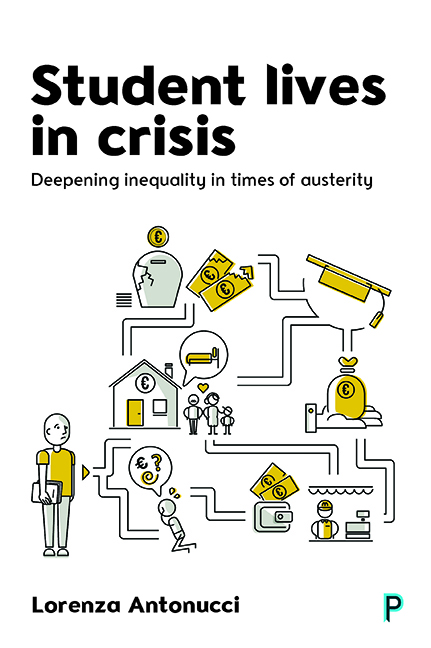Book contents
- Frontmatter
- Dedication
- Contents
- List of tables and figures
- List of acronyms
- Note on author
- Preface: A post-Brexit preface
- Acknowledgements
- Introduction: Young people’s lives at university in crisis
- Part 1 University for all? How higher education shapes inequality among young people
- Part 2 Exploring the inequality of university lives in England, Italy and Sweden
- Part 3 The ‘eternal transition’: young adults and semi-dependence in university
- Conclusion: Addressing growing inequality among young people in university
- Notes
- Annex
- Index
Conclusion: Addressing growing inequality among young people in university
Published online by Cambridge University Press: 05 April 2022
- Frontmatter
- Dedication
- Contents
- List of tables and figures
- List of acronyms
- Note on author
- Preface: A post-Brexit preface
- Acknowledgements
- Introduction: Young people’s lives at university in crisis
- Part 1 University for all? How higher education shapes inequality among young people
- Part 2 Exploring the inequality of university lives in England, Italy and Sweden
- Part 3 The ‘eternal transition’: young adults and semi-dependence in university
- Conclusion: Addressing growing inequality among young people in university
- Notes
- Annex
- Index
Summary
The starting point of this research was the idea that we need to look at the ‘social category’ of young people in university, who are not just students in the lecture room, but also individuals experiencing a protracted phase of ‘semi-dependence’. The idea of democratic and open access to university has shaped the aspirations and choices of the current cohort of young Europeans, as young people from modest backgrounds have been invited to join the European mass HE system. However, increasing the number of young people enrolling in university has had profound overlooked sociological implications: the current cohort of young people deciding to embark on HE are implicitly required to find the resources to pay for HE costs and also to fund the living costs of their HE experience. The corollary of the choice of entering HE for young people is, in fact, that their transition to full independence through labour market participation is postponed until they end their studies. But how are young people supposed to support this protracted semi-dependent state?
Working towards open and democratic access to HE was thought to be a key element in reducing inequalities in society, although this all depends on which type of policy supports the mass expansion of HE: is it a strategy that tackles pre-existing inequalities by providing equal support to young people, or is it a strategy that asks young people to fund their HE privately? As illustrated in this book, the policy strategies used across Europe are different. Policy strategies in England and Italy are clearly in line with the idea of extending access to HE by increasing the private sources that young people and their families invest in this experience. Sweden, instead, has traditionally devoted much policy effort to creating a virtually equal system for all young people embarking on HE, also assuming that their families will not contribute. The Swedish strategy was to propose a ‘public dependence’ during HE, enabling young people to experience equal transitions to independence. In the different ways described in Part 1, all three countries have been influenced by austerity, which has resulted in increasing the private contributions across the three countries.
- Type
- Chapter
- Information
- Student Lives in CrisisDeepening Inequality in Times of Austerity, pp. 159 - 170Publisher: Bristol University PressPrint publication year: 2016



